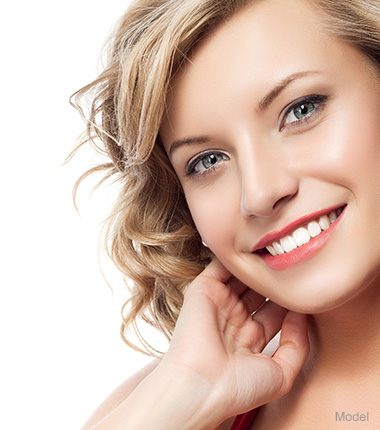Blepharoplasty
ARE YOU CONSIDERING EYELID SURGERY?
Eyelid surgery (technically called blepharoplasty) is a procedure to remove fat–usually along with excess skin and muscle from the upper and lower eyelids. Eyelid surgery can correct drooping upper lids and puffy bags below your eyes – features that make you look older and more tired than you feel, and may even interfere with your vision. However, it won’t remove crow’s feet or other wrinkles, eliminate dark circles under your eyes, or lift sagging eyebrows. While it can add an upper eyelid crease to Asian eyes, it will not erase evidence of your ethnic or racial heritage. Blepharoplasty can be done alone, or in conjunction with other facial surgery procedures such as a facelift or browlift, laser peel and fat injection.
If you’re considering eyelid surgery, this information will give you a basic understanding of the procedure-when it can help, how it’s performed, and what results you can expect. It can’t answer all of your questions, since a lot depends on the individual patient and the surgeon. Please ask us about anything you don’t understand.
THE BEST CANDIDATES FOR EYELID SURGERY
Blepharoplasty can enhance your appearance and your self-confidence, but it won’t necessarily change your looks to match your ideal, or cause other people to treat you differently. The best candidates for eyelid surgery are
- Men and women who are physically healthy, psychologically stable, and realistic in their expectations.
- Most are 35 or older, but if droopy, baggy eyelids run in your family, you may decide to have eyelid surgery at a younger age.
A few medical conditions make blepharoplasty more risky. They include thyroid problems such as hypothyroidism and Graves’ disease, dry eye or lack of sufficient tears, high blood pressure or other circulatory disorders, cardiovascular disease, and diabetes. A detached retina or glaucoma is also reason for caution; check with your ophthalmologist before you have surgery.
PLANNING YOUR SURGERY
The initial consultation with us is very important. We will need your complete medical history, so check your own records ahead of time and be ready to provide this information. Be sure to inform us if you have any allergies; if you’re taking any vitamins, medications (prescription or over-the-counter), or other drugs; and if you smoke. The week before your surgery avoid taking cold remedies as well as pain killers other than acetaminophen or Tylenol®.
In this consultation, your eyes will be assessed and a consultation by an ophthalmologist who will test your vision and assess your tear production may be ordered. You should also provide any relevant information from your ophthalmologist or the record of your most recent eye exam. If you wear glasses or contact lenses, be sure to bring them along.
You and Dr Dolynchuk should carefully discuss your goals and expectations for this surgery. You’ll need to discuss whether to do all four eyelids or just the upper or lower ones, whether skin as well as fat will be removed, and whether any additional procedures are appropriate.
The doctor will explain the techniques and anesthesia we will use, the type of facility where the surgery will be performed, and the risks and costs involved. (Note: Most insurance policies don’t cover eyelid surgery, unless you can prove that drooping upper lids interfere with your vision. Check with your ophthalmologist.)
Don’t hesitate to ask the doctor any questions you may have, especially those regarding your expectations and concerns about the results.





